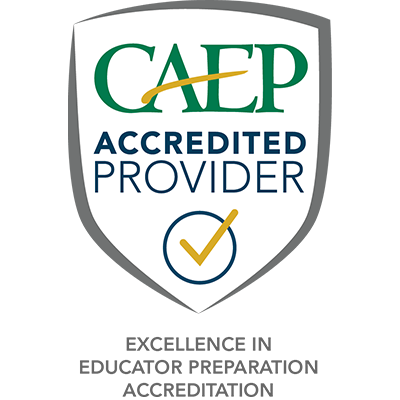Bachelor of Science Education in Elementary Education
In the elementary education program, as a student you are able to complete a teacher certification program in either Grades PK-3 or in Grades 3-6. Successful completion of the selected certification program, along with passing the required Michigan Tests for Teacher Certification (MTTCs), leads to a Michigan Standard Teaching Certificate in the appropriate grade band.
Concentrations
- PK-3
- 3-6
- TeachDETROIT
What you'll learn
As a student you will learn exciting and cutting-edge techniques from world-renowned faculty who engage in contemporary classroom-based research. Through coursework and extensive clinical experiences, students gain pedagogical expertise in their respective grade band certification area. This includes a focus on young children’s development of literacy and mathematics skills. The course sequence is purposeful and has been created to support student success so that students build on their knowledge each semester in meaningful ways. The curriculum aligns with all the Michigan Department of Education standards to ensure that you'll become a highly prepared educator.
Curriculum for the Bachelor of Science Education
Clinical experiences
In addition to classroom experiences, students engage in multiple clinical experiences at varying points within the program. Clinical courses are co-requisites with methods courses, allowing students to engage in real-world application of the content they learn in courses. In the final semester in the program, students engage in full-time student teaching, during which they will take the lead in an elementary classroom environment for an extended period of time. Students are supported by cooperating teachers, university supervisors, and the clinical office during their clinical experiences. Students are required to complete an application for all clinical courses the semester prior to enrolling in a clinical course.
Career outlook for individuals
Students who successfully complete the certification program and pass the required Michigan Tests for Teacher Certification (MTTCs), will be eligible to be hired as a certified teacher, in their grade band, within the state of Michigan. Currently, Michigan is experiencing a significant teacher shortage. You will be entering a job market with many opportunities. Wayne State University teacher certification graduates are sought out by school districts state-wide. Many of our graduates continue their education to become school administrators, district administrators, counselors, etc. Program graduates are qualified to work in the non-profit sector as well.
Admission requirements
Undergraduate students entering Wayne State University, either from high school or transferring from other accredited universities or colleges, are admitted to the program as a pre-major. At this time, students begin taking foundational education coursework in the Teacher Education Division. Students are required to apply for admission to the professional program. Cohort admission requirements include successful completion of year 1 and year 2 coursework. Students must have a cumulative GPA of 2.50 or higher by program completion to earn a degree in Elementary Education and to be eligible for a Michigan Standard Teaching Certificate.
Learn more
Develop the knowledge and skills that are essential for success as a future educator. With a B.S.Ed. in Elementary Education, you'll be one step closer to making the difference in the lives of children.
- Want to find out more about elementary education at Wayne State? Request more information
- Eager to get started? Apply now
- Make sure you are on track for graduation - Speak with an academic advisor
Professional Licensure Program Disclosure
The University has determined that the curriculum of the initial teacher certification and endorsement programs at Wayne State University in the College of Education, leading to a credential as a certified teacher, meets the educational requirements for licensure or certification in all states. However, there may be specific state requirements beyond the reciprocity agreement.
Accreditation

CAEP_Accreditation
The College of Education educator preparation programs are accredited by the Council for the Accreditation of Educator Preparation (CAEP).
Accreditation means that a program meets the standards set by the academic and professional community. It’s a seal of approval indicating that the program prepares new educators to teach effectively.
Contact
Academic Services Advisors
Last Names A-K
Yan Chen
Academic services officer II
313-577-1601
hr0987@wayne.edu
Schedule an appointment
Last Names L-Z
Jeffrey Lisiecki
Academic services officer II
313-577-1601
gc2394@wayne.edu
Schedule an appointment
Teacher Education Division
Phone: 313-577-0902